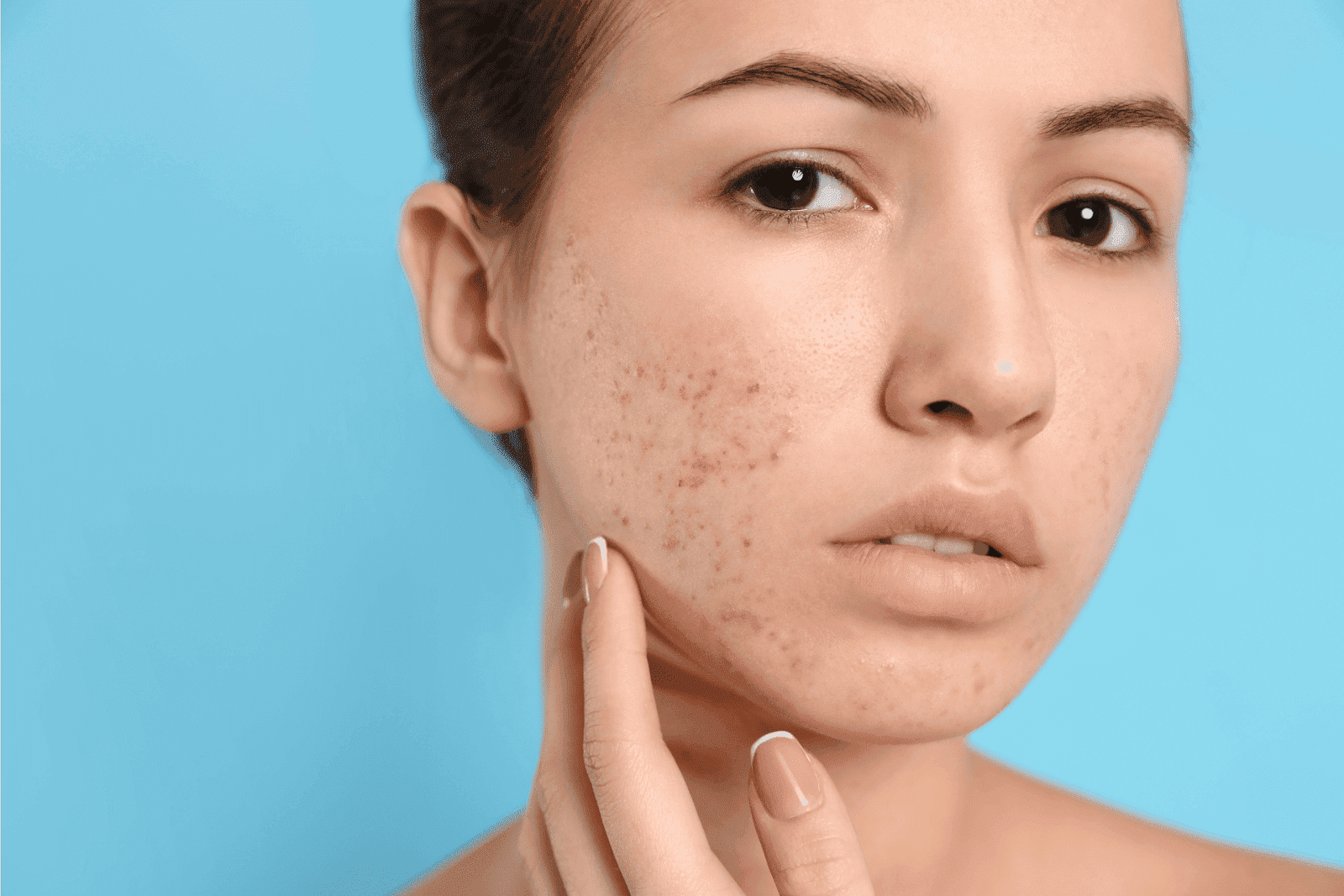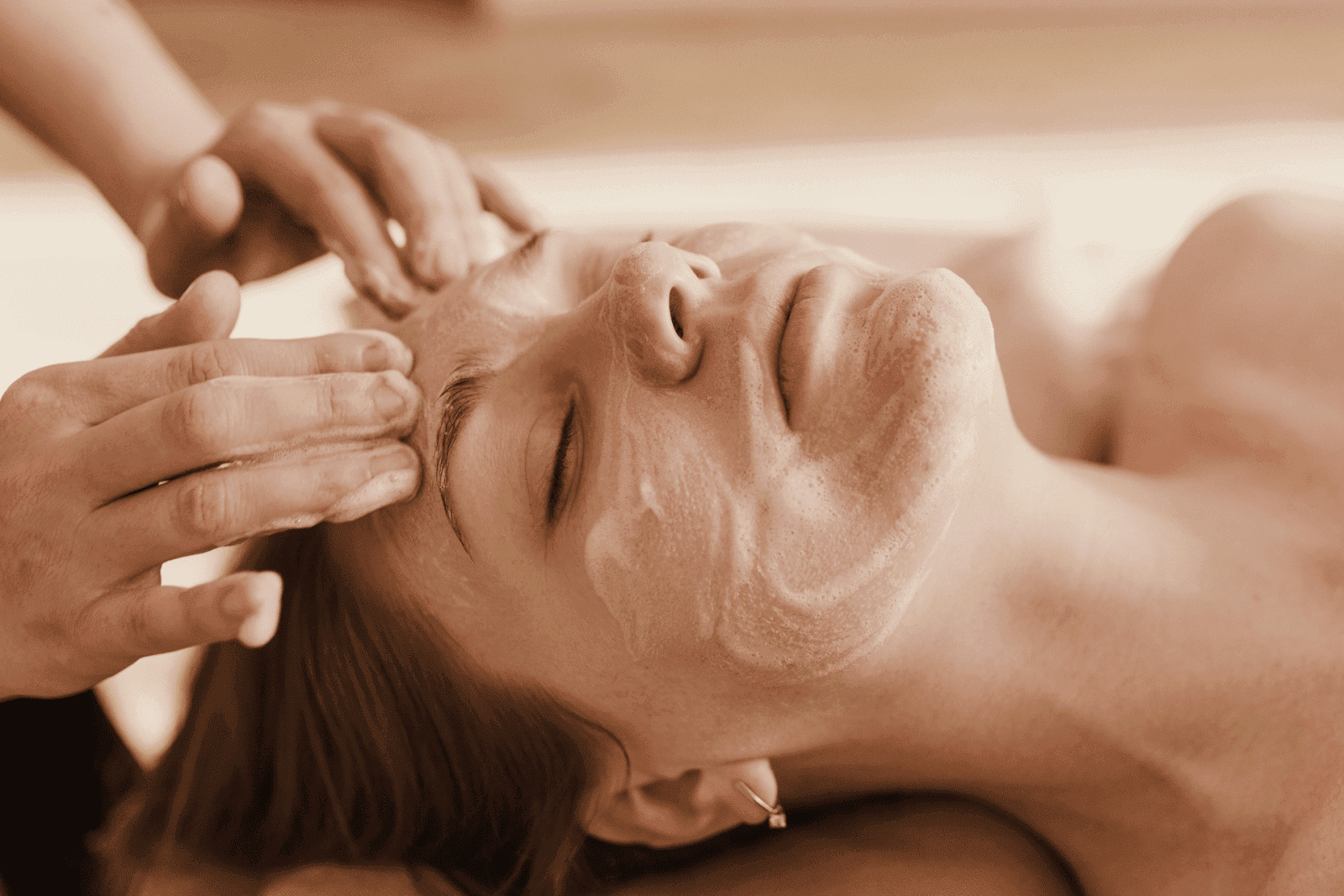Natural Ways to Fade Acne Scars
Acne scars can be a persistent reminder of past skin troubles, affecting confidence and skin texture alike. While there are numerous clinical treatments available, many [...]
Read More
Medically reviewed by Alan Lucks | MD, Alan Lucks MDPC Private Practice - New York on October 11th, 2025.
Aloe vera gel applied twice daily contains polysaccharides that stimulate collagen production, while vitamin C serums (10-20% concentration) brighten post-inflammatory hyperpigmentation within 6-12 weeks.
Icepick scars are narrow and deep (extending into the dermis), boxcar scars have defined edges with flat bottoms, and rolling scars create wave-like indentations—each responds differently to topical treatments.
Rosehip seed oil contains 77% linoleic acid and vitamin A precursors that help remodel scar tissue when massaged into skin for 2-3 minutes nightly over 12-16 weeks.
Daily SPF 30+ sunscreen prevents UV rays from darkening existing scars and causing additional collagen breakdown, which can make indented scars appear deeper.
Gentle weekly exfoliation with natural fruit acids (like those in papaya or pineapple enzymes) removes dead skin cells without the irritation of harsh scrubs that can worsen scarring.
Acne scars can be a persistent reminder of past skin troubles, affecting confidence and skin texture alike. While there are numerous clinical treatments available, many people seek natural methods to gently and effectively reduce the appearance of these scars. This article explores various natural approaches to fading acne scars, backed by scientific insights and practical tips, to help you achieve smoother, healthier-looking skin.
Acne scars form when the skin undergoes damage during the healing process of acne lesions. The severity and type of scarring depend on factors such as the extent of inflammation, skin type, and the method of treating or managing the acne. Common types of acne scars include atrophic scars, which appear as indentations, and hypertrophic scars, which are raised areas of scar tissue. Atrophic scars can further be classified into icepick scars, boxcar scars, and rolling scars, each presenting unique characteristics that can affect treatment options. Understanding these distinctions can help individuals better communicate their concerns with dermatologists and tailor their treatment plans accordingly.
Knowing the nature of your scars is essential before choosing a treatment method. Natural remedies tend to work best on mild to moderate scarring, while deeper scars may require professional intervention. Ingredients like aloe vera, honey, and vitamin E are often touted for their skin-repairing properties, but results can vary significantly from person to person. For those seeking more intensive treatments, options such as chemical peels, laser therapy, and microneedling have gained popularity for their effectiveness in reducing the appearance of scars. Each treatment comes with its own set of benefits and potential side effects, making it crucial to consult with a qualified professional before proceeding. For personalized advice, telehealth services like Doctronic.ai offer quick, affordable consultations with licensed doctors who can guide you on the best course of action.
In addition to treatment options, understanding the psychological impact of acne scars is equally important. Many individuals experience feelings of self-consciousness or low self-esteem due to their scars, which can affect their social interactions and overall quality of life. Support groups and counseling can provide valuable resources for those struggling with the emotional toll of acne scarring. Furthermore, educating oneself about the condition and connecting with others who share similar experiences can foster a sense of community and empowerment, helping individuals navigate their journey toward clearer skin and improved confidence.
 Top Natural Ingredients to Help Fade Acne Scars
Top Natural Ingredients to Help Fade Acne ScarsAloe vera is renowned for its soothing and healing properties. It contains compounds that promote skin regeneration and reduce inflammation, making it a popular choice for treating acne scars. Applying pure aloe vera gel directly to the skin can help moisturize and encourage the repair of damaged tissue over time. Additionally, aloe vera is rich in vitamins and minerals, including vitamins A, C, and E, which are essential for maintaining healthy skin. Its hydrating qualities also make it an excellent choice for those with oily or combination skin, as it provides moisture without clogging pores.
Vitamin C is a powerful antioxidant that supports collagen production and helps brighten hyperpigmented areas caused by acne scars. Incorporating vitamin C serums or creams into your skincare routine can gradually lighten dark spots and improve skin texture. Look for formulations with stable vitamin C derivatives to maximize effectiveness. Moreover, vitamin C can enhance skin radiance and protect against environmental damage, making it a vital addition to any skincare regimen. When combined with other ingredients like vitamin E or ferulic acid, its efficacy can be significantly boosted, leading to even more pronounced improvements in skin tone and texture.
Honey has natural antibacterial and anti-inflammatory properties. It also promotes wound healing and tissue regeneration. Applying raw honey as a mask or spot treatment can help reduce redness and improve the overall appearance of scars. Manuka honey, in particular, is noted for its potent healing benefits. This unique type of honey is derived from the Manuka tree in New Zealand and is known for its high levels of methylglyoxal, which contributes to its antibacterial properties. Regular use of honey in skincare can also enhance moisture retention, making the skin look plumper and more youthful.
Rosehip seed oil is rich in essential fatty acids and antioxidants that nourish the skin and support its natural repair processes. Regular application can help fade scars by improving skin elasticity and reducing discoloration. This oil is lightweight and suitable for most skin types. In addition to its scar-fading properties, rosehip seed oil is known for its ability to hydrate and rejuvenate the skin, making it a favorite among those looking to achieve a more radiant complexion. Its high content of trans-retinoic acid can also aid in reducing the appearance of fine lines and wrinkles, providing an added benefit for aging skin.
Green tea contains polyphenols that reduce inflammation and protect the skin from oxidative stress. Using skincare products with green tea extract or applying cooled green tea bags to the skin can soothe irritation and promote healing, which may help diminish scar visibility. Furthermore, green tea is known for its ability to regulate sebum production, making it an excellent choice for those with acne-prone skin. The catechins found in green tea not only combat acne but also help improve overall skin tone and texture, providing a dual benefit for those looking to heal and rejuvenate their skin.
Regular exfoliation helps remove dead skin cells and encourages the growth of new, healthy skin. Natural exfoliants such as oatmeal, sugar, or finely ground almonds can be used to gently buff the skin without causing irritation. Avoid harsh scrubbing, which can worsen scars and inflammation.
Protecting your skin from UV exposure is crucial when treating acne scars naturally. Sunlight can darken scars and slow the healing process. Use a broad-spectrum sunscreen daily, preferably with natural ingredients, and wear protective clothing when outdoors. This step enhances the effectiveness of natural treatments by preventing further pigmentation.
Nutrition plays a vital role in skin health. Consuming a diet rich in antioxidants, vitamins, and minerals supports skin repair and reduces inflammation. Foods high in vitamin A, C, and E, as well as omega-3 fatty acids, can promote clearer, healthier skin. Staying well-hydrated also helps maintain skin elasticity and aids in the healing process.
While natural methods are beneficial for many, some acne scars may require medical treatments such as laser therapy, microneedling, or chemical peels for significant improvement. If scars are severe, painful, or worsening, consulting a healthcare professional is advisable.
For accessible and affordable telehealth consultations, Doctronic.ai provides 24/7 video visits with licensed doctors across all 50 states. Their AI-powered platform offers quick, personalized advice that integrates the latest in modern medicine, helping you understand your skin condition and explore suitable treatment options without the wait or high costs of traditional care.
Natural treatments require time and consistent application to show results. It is important to maintain a regular skincare routine and avoid picking or squeezing acne lesions, which can worsen scarring.
Before applying any new natural remedy, perform a patch test to ensure you do not have an allergic reaction. This precaution helps avoid further skin irritation or damage.
Many individuals find the best results by combining natural treatments with professional medical advice. Doctronic.ai makes it easy to get expert guidance and monitor your progress from home.
 Smarter Care for Acne Scars and Skin Health
Smarter Care for Acne Scars and Skin HealthFading acne scars naturally is a gradual process that involves using gentle, effective ingredients and adopting healthy skin habits. Aloe vera, vitamin C, honey, rosehip seed oil, and green tea extract are among the top natural options to support skin healing and reduce scar visibility. Complementing these with exfoliation, sun protection, and a nutritious diet enhances results.
For personalized, modern medical advice tailored to your skin needs, consider using Doctronic.ai. This innovative AI-driven telehealth service offers fast, affordable access to licensed doctors who can help you navigate your skincare journey with confidence.
Embark on a transformative skincare journey with Doctronic, where cutting-edge AI meets compassionate care. Say goodbye to uncertainty and long waits; our AI doctor is ready to provide you with immediate, personalized advice based on the latest medical research. With Doctronic, you'll enjoy the most modern, peer-reviewed skincare insights tailored just for you, ensuring your path to reducing acne scars is as effective and informed as possible. Skip the line. Talk to an AI Doctor Now, for free.
Mild to moderate acne scars can fade significantly with consistent use of natural ingredients over 3-6 months, but severe indented scars typically need professional treatment. Focus on daily vitamin C application, nightly oil massage, and religious sun protection for best results. If you're unsure about your scar type or treatment approach, Doctronic can provide personalized guidance.
Acne scars can be a persistent reminder of past skin troubles, affecting confidence and skin texture alike. While there are numerous clinical treatments available, many [...]
Read More